Past workshops, conferences and other special events
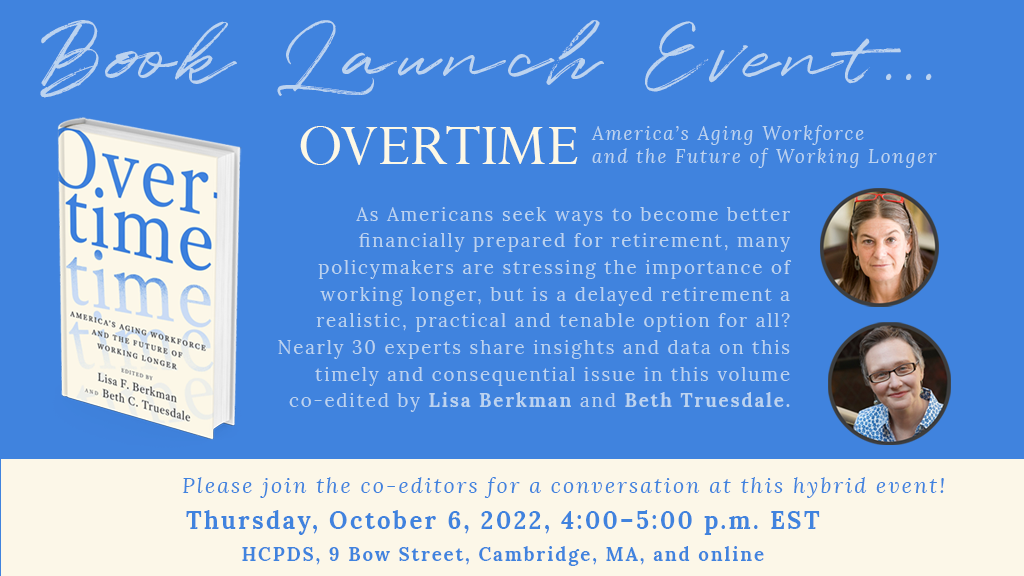
Book Launch: Thursday, October 6, 2022, 4:00–5:00 pm ET

Virtual Book Launch Event: Wednesday, October 13, 2021, 4:00–5:00 pm EDT
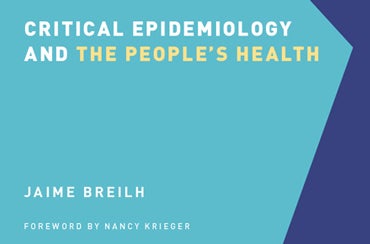
Virtual Book Launch: January 21, 2021, 6:00–7:00 pm
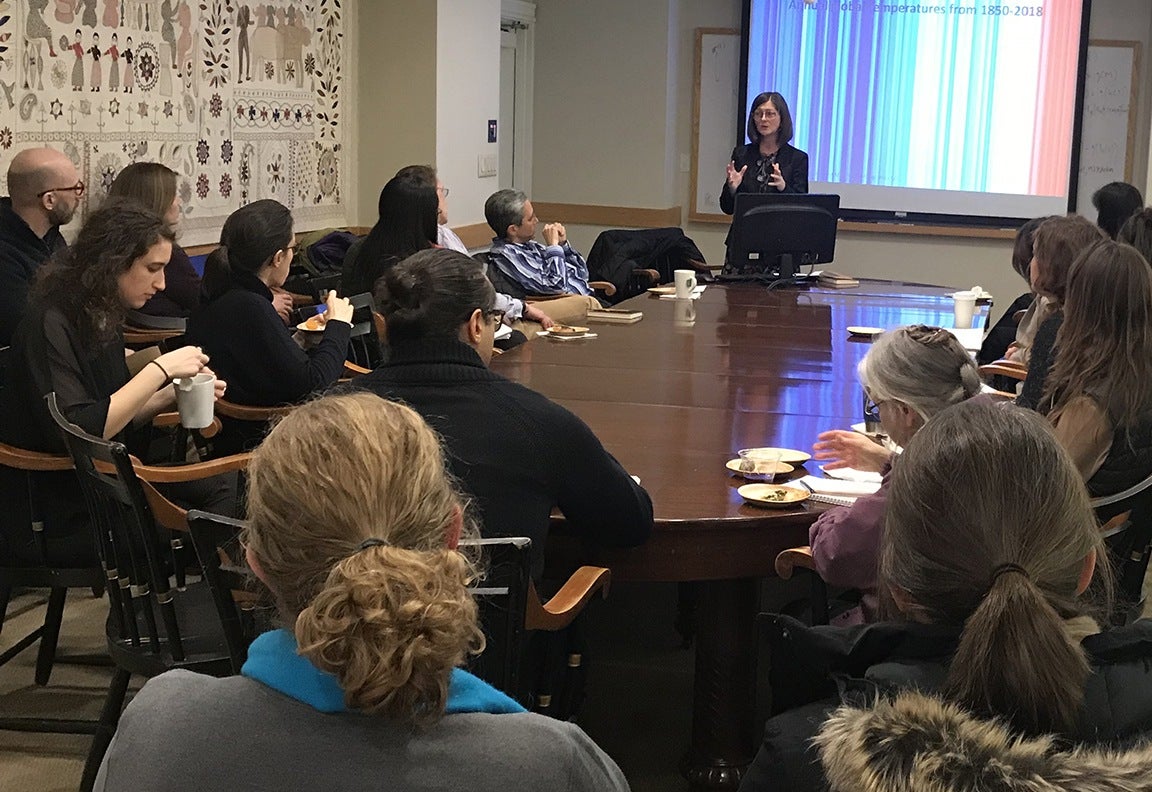
Book Launch: Tuesday, Feb. 12, 2019, 4:00–6:00 pm
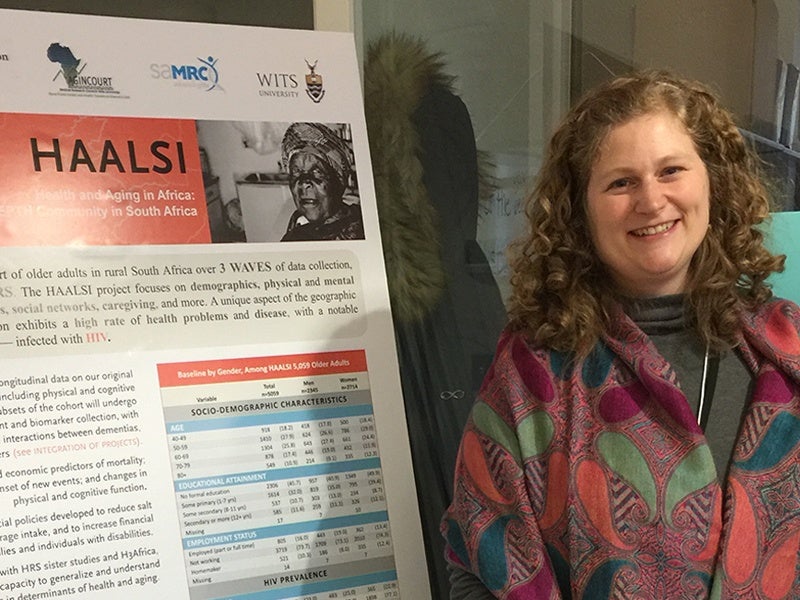
Pretzels & Posters at the Pop Center: Friday, December 14, 2018, 2:00–4:00 pm
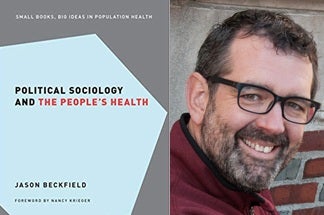
Worldwide Week at Harvard Event: Book launch celebration – Tuesday, October 23, 2018, 4:00–6:00 pm
We celebrated Jason Beckfield’s new book “Political Sociology and the People’s Health,” with a reception and book signing event. See photos from the event. Welcome and opening remarks were delivered by Pop Center Director Lisa Berkman, Social Epidemiology Professor and Series Editor Nancy Krieger introduced the Small Books, Big Ideas in Population Health series, and Beckfield gave a brief talk and then signed books.
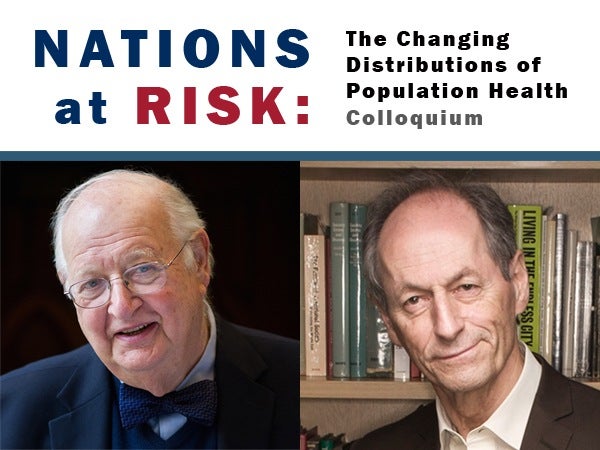
SPECIAL EVENT: Friday, April 13, 2018, 2:00–5:00 pm
See photos and learn more about this event in this HCPDS newspost and in The Harvard Gazette. The event took place in the Joseph B. Martin Conference Center at Harvard Medical School, 77 Avenue Louis Pasteur, Boston, MA, and was also broadcast live online.
Nations at Risk: The Changing Distributions of Population Health Colloquium
2:07: Opening remarks and introduction of Professor Sir Angus Deaton and Professor Sir Michael Marmot by Harvard Chan School Dean Michelle Williams
2:15: Angus Deaton presentation entitled Inequality and the Deaths of Despair
3:00: Michael Marmot presentation entitled Social Justice and the Health Gap
3:45: Facilitated discussion between Deaton and Marmot moderated by Jason Beckfield, Harvard Professor of Sociology, and associate director, Harvard Center for Population and Development Studies
4:30: Closing remarks by Lisa Berkman
4:30: Reception outside rotunda until 5:00
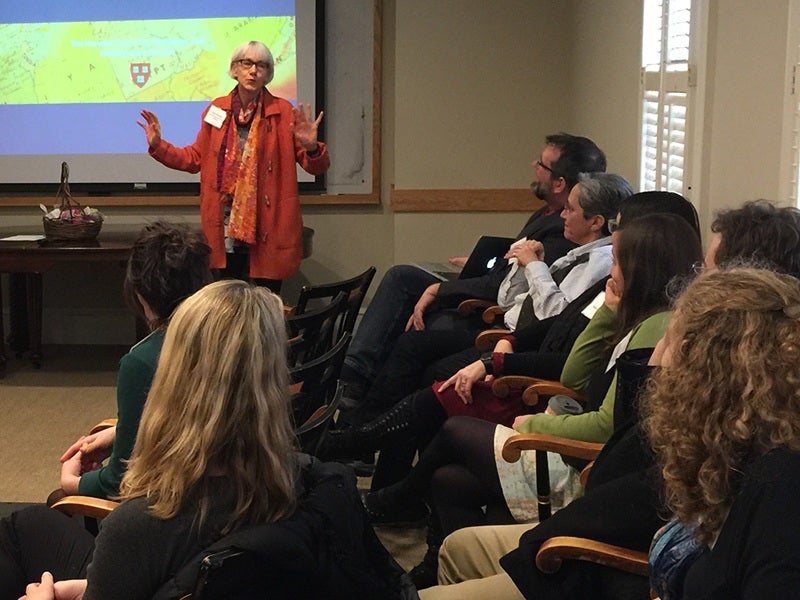
Reception for Faculty Featuring Chocolate Tasting – Friday, February 9, 2018, 2:00–4:30 pm
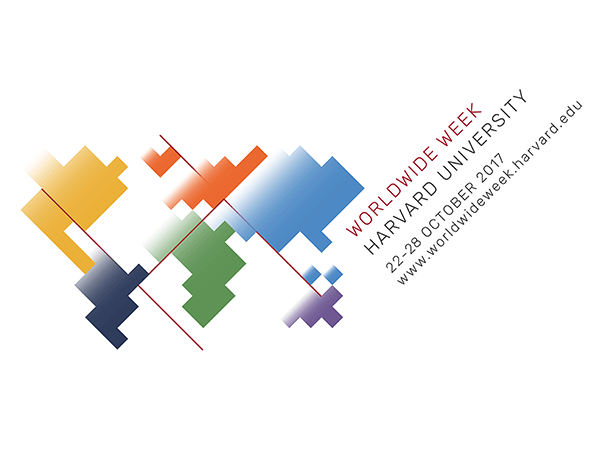
WORLDWIDE WEEK AT HARVARD – Thursday, October 26, 2017, 12:00–1:30 pm.
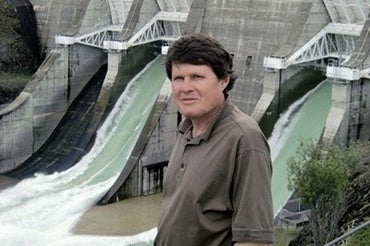
Memorial Workshop: John Briscoe's Legacy – Friday, October 23, 2015, 3:00–5:00 pm
A conversation with Baroness Paddington – Friday, October 2, 2015, 12:00–2:00 pm
How to access/use datasets from WFHN study @ 2015 PAA, San Diego, CA – April 29, 2015
Special Lecture: – Tuesday, April 2, 2015
What Shapes Health? A Harvard T.H. Chan School Forum Webcast with Lisa Berkman – March 3, 2015
An H3Africa Consortium Project, Wed., Jan. 28, 2015
Solar Lighting, Inclusive Growth in India Nov. 14, 2014
Book Launch Celebration: Social Epidemiology, 2nd Edition – Friday, September 12, 2014
The Harvard Pop Center @ 50 – April 28–29, 2014
Women and Health: A Cause of Optimism? Wed., March 12, 2014
Women, Work and Health: In Need of a Redesign – Wed., October 2, 2013
- Lisa Berkman, PhD, Director of the Harvard Center for Population and Development Studies and a principal investigator of The Work, Family & Health Network
- Jo Ivey Boufford, MD, President of The New York Academy of Medicine
- Karen Kornbluh, most recently U.S. Ambassador to the Organisation for Economic Co-operation and Development (OECD) in Paris
- Pat Milligan, President of Mercer’s North America region and a member of the company’s executive committee.
Sustainability, Nations, Globalization: Can We Have Them All? Wed., October 3, 2012
Going Solo: The Extraordinary Rise and Surprising Appeal of Living Alone – April 17, 2012
Living Forward, Understanding Backward: Transforming Public Health in the 21st Century – April 2, 2012
The Harvard Canada Seminar is an annual event offered through the Harvard Canada Program at the Weatherhead Center for International Affairs
A World of 7 Billion: Matters Arising with Babatunde Osotimehin, Executive Director, United Nations Population Fund – October 12, 2011
Production/Reproduction: Women's Well-Being across the Globe – May 20, 2011
- Finlay, J.E. and A.M.Fox (2011) How Reproductive Health Laws Help to Explain the Gap Between Contraceptive Use and Fertility Decline: The Curious Case of Ghana, Mimeo (Submitted for publication)
- Gornick, J and Hegewisch, A. The Impact of “Family Friendly Policies” on Women’s Employment Outcomes and on the Costs and Benefits of Doing Business.” World Bank Report. 2011. Pre-Publication.
- Krieger N, Kaddour A, Koenen K, Kosheleva A, Chen JT, Waterman PD, Barbeau EM. Occupational, social, and relationship hazards and psychological distress among low-income workers: implications of the 1`inverse hazard law.’ J Epidemiol Community Health 2011; 65:260-272. doi:10.1136/jech.2009.087387
- Krieger N. Workers are people too: societal aspects of occupational health disparities — an ecosocial perspective. Am J Industrial Med 2010; 53:104-115.
- Krieger N. Genders, sexes, and health: what are the connections — and why does it matter? Int J Epidemiol 2003; 32:652-657. DOI: 10.1093/ije/dyg156.
- Gita Sen and Chiranjib Sen. Women’s Domestic Work and Economic Activity: Results from National Sample Survey. Economic and Political Weekly. Vol. 20, No. 17 (Apr. 27, 1985), pp. WS49-WS56
- Save the Children, State of the World’s Mothers, Complete Mother’s Index.
- Save the Children, State of the World’s Mothers, FAQs About Mother’s Index.
Book Signing and Reception: Epidemiology and the People's Health – March 9, 2011
The Pregnancy Intentions of HIV-Positive Women: Forwarding the Research Agenda – March 17–19, 2010
Social Determinants of Global Population Health Conference – January 15–16, 2010
- Lisa Berkman, Director, Harvard Center for Population and Development Studies and the Thomas D. Cabot Professor of Public Policy and of Epidemiology at the Harvard School of Public Health. She is an internationally-recognized social epidemiologist whose work focuses extensively on social and policy influences on health outcomes.
- Julio Frenk, Dean of the Faculty and T & G Angelopoulos Professor of Public Health and International Development at the Harvard School of Public Health. Dr. Frenk is an eminent authority on global health who served as the Minister of Health of Mexico from 2000 to 2006. He pursued an ambitious agenda to reform the nation’s health system, with an emphasis on redressing social inequality.
- Sir Michael Marmot, Director of the International Institute for Society and Health, and MRC Research Professor of Epidemiology and Public Health, University College, London. Dr. Marmot was Chair of the WHO Commission on Social Determinants of Health from 2005 to 2008. He has led a research group on health inequalities for the past 30 years. He is Principal Investigator of the Whitehall Studies of British civil servants, investigating explanations for the striking inverse social gradient in morbidity and mortality. He leads the English Longitudinal Study of Ageing (ELSA) and is engaged in several international research efforts on the social determinants of health. He chairs the Department of Health Scientific Reference Group on tackling health inequalities. He was a member of the Royal Commission on Environmental Pollution for six years and is an honorary fellow of the British Academy.
This event was made possible by generous gifts from Seth and Sarah Glickenhaus; Ambika Collins and Phyllis Collins; The Dillon Fund; and The Clarence and Anne Dillon Dunwalke Trust.